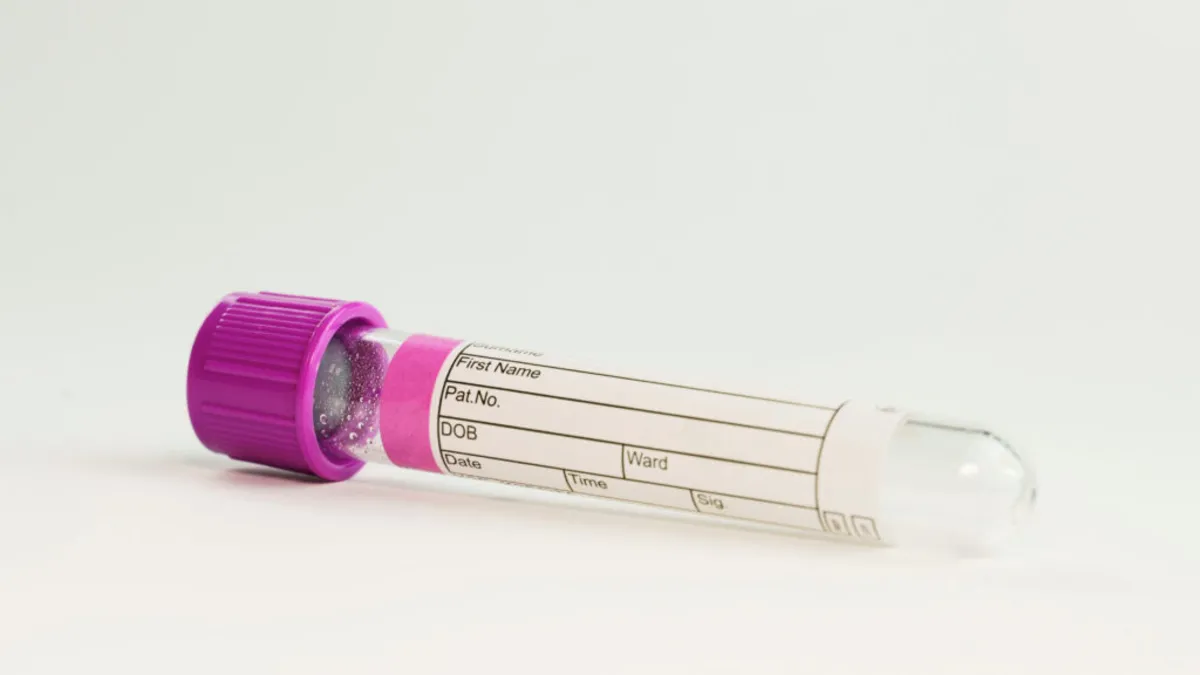
A prominent medical group focused on Alzheimer’s disease has recently issued groundbreaking recommendations that could transform how specialists diagnose patients experiencing cognitive impairment. The Alzheimer’s Association has released its first clinical guidelines concerning blood biomarker testing, suggesting that certain blood tests can serve as effective alternatives to more complex and invasive diagnostic procedures. This shift could potentially increase the number of patients receiving timely treatment for this devastating disease.
On Tuesday, the Alzheimer’s Association stated that blood tests exhibiting over 90% sensitivity (the ability to correctly identify positive results) and 90% specificity (the ability to correctly identify negative results) can be leveraged in place of traditional diagnostic methods such as PET scans and cerebrospinal fluid tests. Furthermore, tests with over 90% sensitivity and at least 75% specificity can be utilized to triage patients effectively. In this context, negative results can confidently rule out Alzheimer’s, while positive results necessitate confirmation through standard diagnostic techniques due to the higher risk of false positives associated with blood tests.
The authors of the guidelines emphasized that these recommendations should not replace a thorough clinical evaluation. They are intended solely for individuals under the care of specialists who have already been diagnosed with cognitive impairment. It’s important to note that there is considerable variability among available blood tests, with many lacking the required accuracy thresholds. While the guidelines do not endorse specific tests, they include a review of numerous blood tests that measure critical biomarkers, including pTau217, the ratio of pTau217 to non-pTau217, and the ratio of Aβ42 to Aβ40.
Rebecca Edelmayer, a vice president of scientific engagement at the Alzheimer’s Association and one of the guidelines’ authors, indicated that a chart detailing the various tests and their accuracy will be available on an online portal that will be continuously updated. The recent approval of new Alzheimer’s drugs has fueled a surge in the development of blood tests as a more convenient and cost-effective diagnostic alternative. As of now, the Food and Drug Administration has approved one such test, but clear guidelines for their use have been lacking until now.
The introduction of these recommendations is expected to enhance testing and diagnosis rates, particularly in rural areas where access to scans and spinal fluid tests is often limited. Joseph Quinn, a professor of neurology at Oregon Health & Science University, who did not participate in creating the guidelines, remarked, “I think this is reasonable. They’ve really thought through this very carefully in terms of making a diagnosis.”
Experts like Stephen Salloway, a professor of neurology at Brown University, stress the necessity for patients planning to initiate treatment to undergo PET scans prior to starting therapy. New therapies from companies like Eisai, Biogen, and Eli Lilly aim to reduce amyloid plaques in the brain, which are believed to be linked to Alzheimer’s. Salloway suggests that doctors should monitor patients not only before treatment but also throughout the therapy to confirm that amyloid levels are decreasing. While blood tests can indicate whether patients are positive or negative for amyloid, they are not reliable indicators of the actual quantity of amyloid present in the brain.
The new guidelines do not address the use of blood tests for monitoring patients undergoing treatment. However, drug manufacturers have actively supported the advancement of these blood tests. For instance, Lilly has recently partnered with a telehealth provider to facilitate easier diagnoses for patients, allowing them to connect with a virtual platform for necessary evaluations and prescriptions.
The authors of the guidelines reviewed nearly 50 studies to formulate their recommendations, focusing exclusively on studies involving individuals with cognitive impairment. They evaluated tests based on a single threshold for positive or negative results and rated the certainty of evidence supporting each test’s accuracy. This initiative serves as a crucial call to action for researchers to devise studies and publish findings that can encourage the Alzheimer’s Association to recognize these tests as robustly supported by evidence.